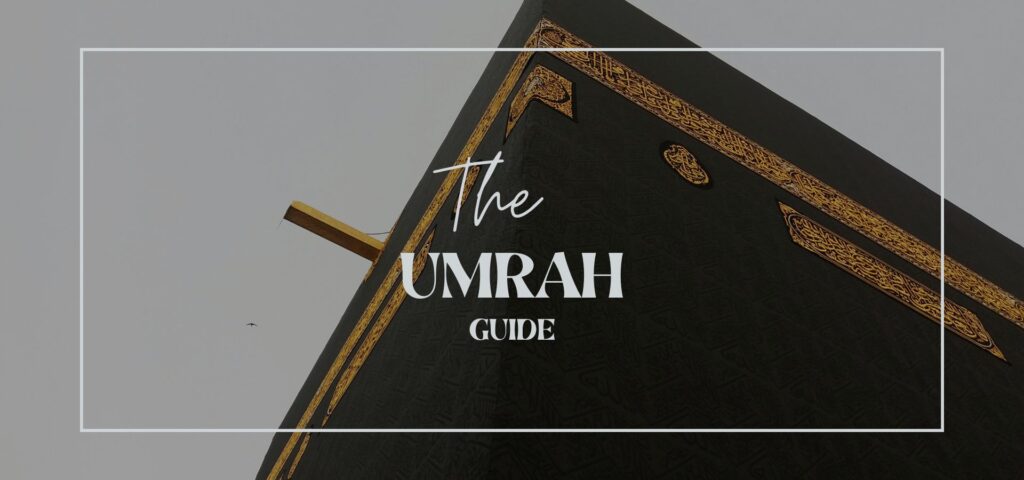
Umrah Travel Tips: What You Need to Know
To ensure a smooth and fulfilling Umrah, consider these travel tips:
•Book early: Secure flights, accommodation, and visa well in advance.
•Timing: Consider travelling during off-peak seasons for a less crowded experience.
•Pack Light: Only bring essentials; laundry services are readily available.
•Health: Stay hydrated, wear comfortable shoes, and be mindful of your physical limitations during Tawaf and Sa’i.
•Documents: Keep copies of your passport, visa, and travel documents handy.
•Currency: Carry a small amount of Saudi Riyal for immediate expenses.
•Communication: Local SIM cards or international roaming plans are useful for staying connected.
•Plan your rituals: Avoid peak times to perform rituals with ease and focus.
•Cultural Awareness: Dress modestly and respect local customs.
•Book early: Secure flights, accommodation, and visa well in advance.
•Timing: Consider travelling during off-peak seasons for a less crowded experience.
•Pack Light: Only bring essentials; laundry services are readily available.
•Health: Stay hydrated, wear comfortable shoes, and be mindful of your physical limitations during Tawaf and Sa’i.
•Documents: Keep copies of your passport, visa, and travel documents handy.
•Currency: Carry a small amount of Saudi Riyal for immediate expenses.
•Communication: Local SIM cards or international roaming plans are useful for staying connected.
•Plan your rituals: Avoid peak times to perform rituals with ease and focus.
•Cultural Awareness: Dress modestly and respect local customs.
The Role of Intention (Niyyah)
A key component of Umrah is the Niyyah (intention). Before starting any of the Umrah rituals, a pilgrim must make a sincere intention to perform Umrah for the sake of Allah. This intention sets the tone for the pilgrimage and reminds the pilgrim of the spiritual goals behind each ritual
Guide to Performing Umrah
Umrah, a sacred pilgrimage to Makkah, is a profound act of worship for Muslims. Unlike Hajj, Umrah can be performed at any time of the year. The process involves specific rituals performed with great devotion. It begins with Ihram, a state of purity, followed by the Tawaf (circumambulation of the Kaaba), and Sa’i (walking between Safa and Marwah). The pilgrimage concludes with Tahallul, where pilgrims shave or cut their hair, symbolizing renewal. Though not mandatory like Hajj, Umrah holds immense spiritual significance, offering an opportunity for reflection, repentance, and spiritual growth.
Essential Umrah Preparations
Preparing for Umrah requires both spiritual and practical planning. Start by renewing your intentions and seeking forgiveness. Study the Umrah rituals and Duas (prayers) to be recited at each stage. Obtain a valid visa, and ensure your passport has at least six months of validity. Carrying a small bag for personal items during the pilgrimage is also recommended. Pack essentials like Ihram garments, a prayer mat, a small Quran, and comfortable footwear. Health preparations are crucial; get vaccinated as required by Saudi regulations and pack necessary medications.
Sacred Sites to Visit During Umrah
Besides the Kaaba in Masjid al-Haram, key sites include:
•Maqam Ibrahim: A stone where Prophet Ibrahim stood while building the Kaaba.
•Zamzam Well: Located within Masjid al-Haram, this well is believed to have miraculous water.
•Jabal al-Nour: Home to the Cave of Hira, where Prophet Muhammad(PBUH) received the first revelation.
•Mount Arafat: Though more associated with Hajj, it’s a site of significant prayer and reflection.
•Masjid al-Qiblatayn: The mosque where the direction of prayer was changed from Jerusalem to Makkah.
•Mina: The site of stoning rituals during Hajj but still significant to visit during Umrah.
*Visiting these sites enhances the spiritual experience of Umrah,connecting pilgrims to the profound history of Islam.
Spiritual Journey: Understanding the Significance of Umrah
Umrah is more than just a series of rituals; it is a spiritual journey that embodies a Muslim’s submission to Allah’s will and a means of seeking forgiveness, purification and a closer connection to Allah. The rituals of Umrah symbolize the unity of Muslims and the remembrance of the Prophet Ibrahim’s devotion. Unlike Hajj, which is obligatory once in a lifetime, Umrah is a Sunnah act that can be performed multiple times, offering continuous spiritual renewal. The rites of Umrah mirror the life and struggles of the Prophet Muhammad, serving as a reminder of the path to righteousness and the importance of steadfast faith.
Umrah Etiquette and Cultural Sensitivity
Pilgrims should be mindful of the etiquette and cultural norms during Umrah. Respect for sacred spaces is paramount— avoid raising your voice or causing disruptions within the holy sites. Modesty in dress and behaviour is essential; men should wear the Ihram properly, while women should ensure their clothing adheres to Islamic guidelines. Photography should be conducted respectfully, avoiding capturing others without permission, especially in sensitive areas. Additionally, understanding basic Arabic phrases can enhance your experience, aiding in communication with locals and fellow pilgrims.
